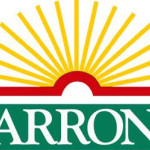- Industry: Printing & publishing
- Number of terms: 62402
- Number of blossaries: 0
- Company Profile:
Founded in 1941, Barron's Educational Series is a leading publisher of test preparation manuals and school directories. Among the most widely recognized of Barron's many titles in these areas are its SAT and ACT test prep books, its Regents Exams books, and its Profiles of American Colleges. In ...
To apply a liquid (such as melted butter or a glaze) with a pastry (or basting) brush to the surface of food such as meat or bread.
Industry:Culinary arts
To clear a cloudy liquid by removing the sediment. The most common method is to add egg whites and/ or eggshells to a liquid (such as a stock) and simmer for 10 to 15 minutes. The egg whites attract any particles in the liquid like a magnet. After cooling for about an hour, the mixture is poured through a cloth-lined sieve to strain out all residue. Rendered fat can be clarified by adding hot water and boiling for about 15 minutes. The mixture is then strained through several layers of cheesecloth and chilled. The resulting top layer of fat should be almost entirely clear of residue.
Industry:Culinary arts
To coagulate, or separate into curds and whey. Soured milk curdles, as do some egg- and milk-based sauces when exposed to prolonged or high heat. Acids such as lemon juice also cause curdling in some mixtures.
Industry:Culinary arts
To combine a food with various hot or spicy seasonings such as red pepper, mustard or tabasco sauce, thereby creating a "deviled" dish.
Industry:Culinary arts
To cook food directly under or above the heat source. Food can be broiled in an oven, directly under the gas or electric heat source, or on a barbecue grill, directly over charcoal or other heat source.
Industry:Culinary arts
To cook food in an oven, thereby surrounding it with dry heat. It's imperative to know the accurate temperature of an oven. Because most of them bake either hotter or cooler than their gauges read, an oven thermometer is vital for accurate temperature readings.
Industry:Culinary arts
To cook food in hot fat deep enough to completely cover the item being fried. The oil or fat used for deep-frying should have a high smoke point (the point to which it can be heated without smoking). For that reason, butter and margarine are not good candidates for frying; shortening, lard and most oils are. The temperature of the fat is all-important and can mean the difference between success and disaster. Fat at the right temperature will produce a crisp exterior and succulent interior. If it's not hot enough, food will absorb fat and be greasy; too hot, and it will burn. An average fat temperature for deep-frying is 375°F, but recipes differ according to the characteristics of each food. To avoid ruined food, a special deep-fat thermometer should be used. Most thermometers used for deep-fat are dual-purpose and also used as candy thermometers. Though special deep-fat fryers fitted with wire baskets are available, food can be deep-fried in any large, heavy pot spacious enough to fry it without crowding. To allow for bubbling up and splattering, the container should be filled no more than halfway full with oil. Fat or oil used for deep-frying may be reused. Let it cool, then strain it through cheesecloth and funnel into a bottle or other tightly sealed container before refrigerating.
Industry:Culinary arts
To cook quickly over high heat, causing the surface of the food to turn brown while the interior stays moist. This method not only gives food an appetizing color, but also a rich flavor. Browning is usually done on top of the stove, but may also be achieved under a broiling unit.
Industry:Culinary arts
To create an emulsion by reducing all the particles to the same size. In homogenized milk, for instance, the fat globules are broken down mechanically until they are evenly and imperceptibly distributed throughout the liquid. Commercial salad dressings are also often homogenized.
Industry:Culinary arts
